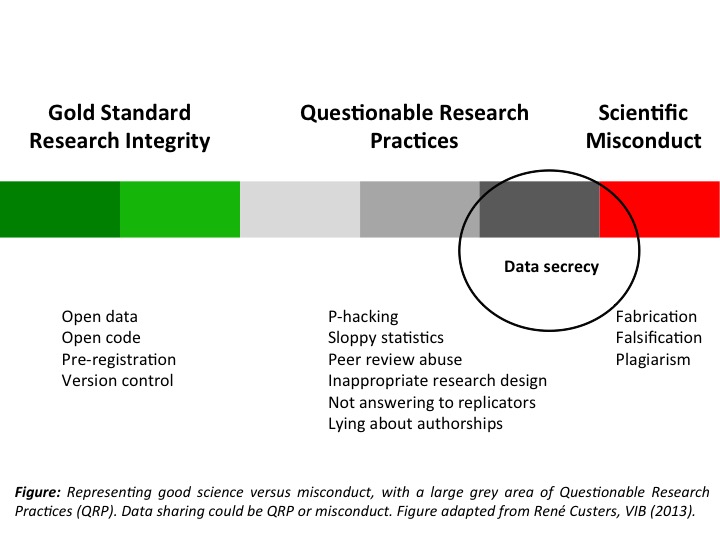- Many researchers don’t share data even if they promise to do so - see, for example, Krawczyk and Reuben’s 2012 study “(Un)available upon request: field experiment on researchers' willingness to share supplementary materials [see also “How and why researchers share data (and why they don’t)”]
- Scientific misconduct definitions usually includes fabrication, falsification or plagiarism. Sharing research data provides evidence that there was no fabrication or falsification involved, hence it’s crucial in avoiding misconduct allegations and demonstrating proper conduct.
- A broader definition of scientific misconduct includes departure from accepted standards and practices of a research community. As many research communities strive to be open with regard to the evaluation of their knowledge claims, obligations to share data can be seen as part of the research standards and practices. Hence, data secrecy can be considered a questionable research practice or a misconduct.
The continuum of research practices described by Janz ranges from the gold standards of open data, open code, pre-registration and version control to questionable research practices of p-hacking, sloppy statistical methods and other manipulations to withholding data to misconduct with its fabrication, falsification, and plagiarism.
[caption id="" align="aligncenter" width="433"]
 From Janz' LSE Impact of Social Sciences blog post: Research practices continuum[/caption]
From Janz' LSE Impact of Social Sciences blog post: Research practices continuum[/caption]
No comments:
Post a Comment